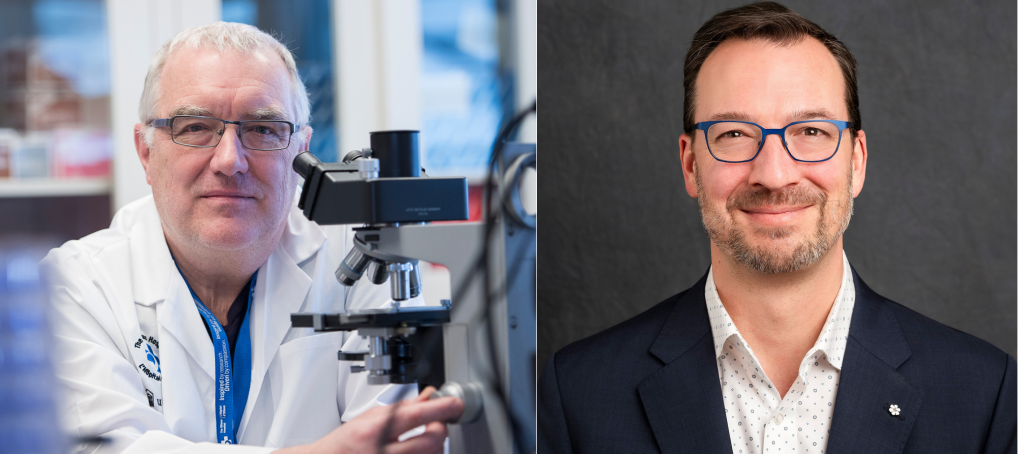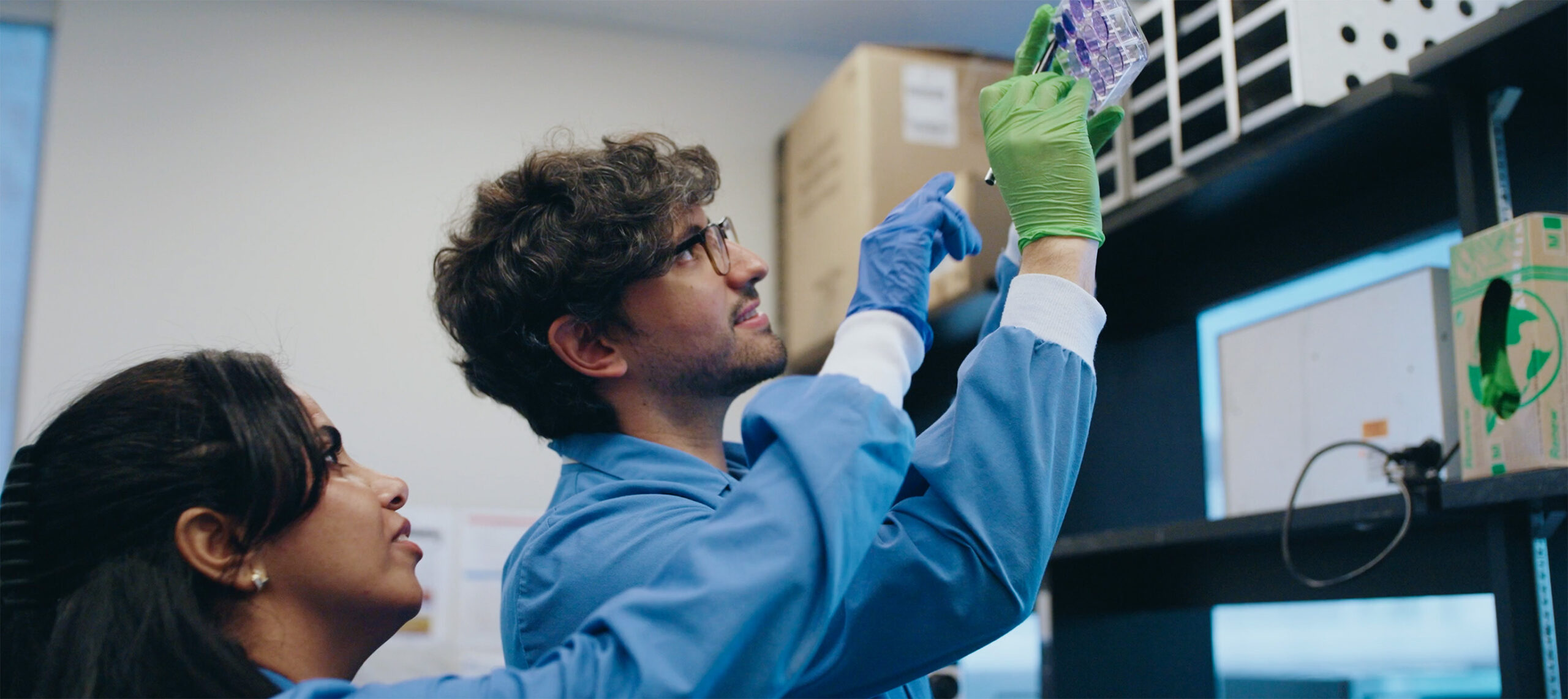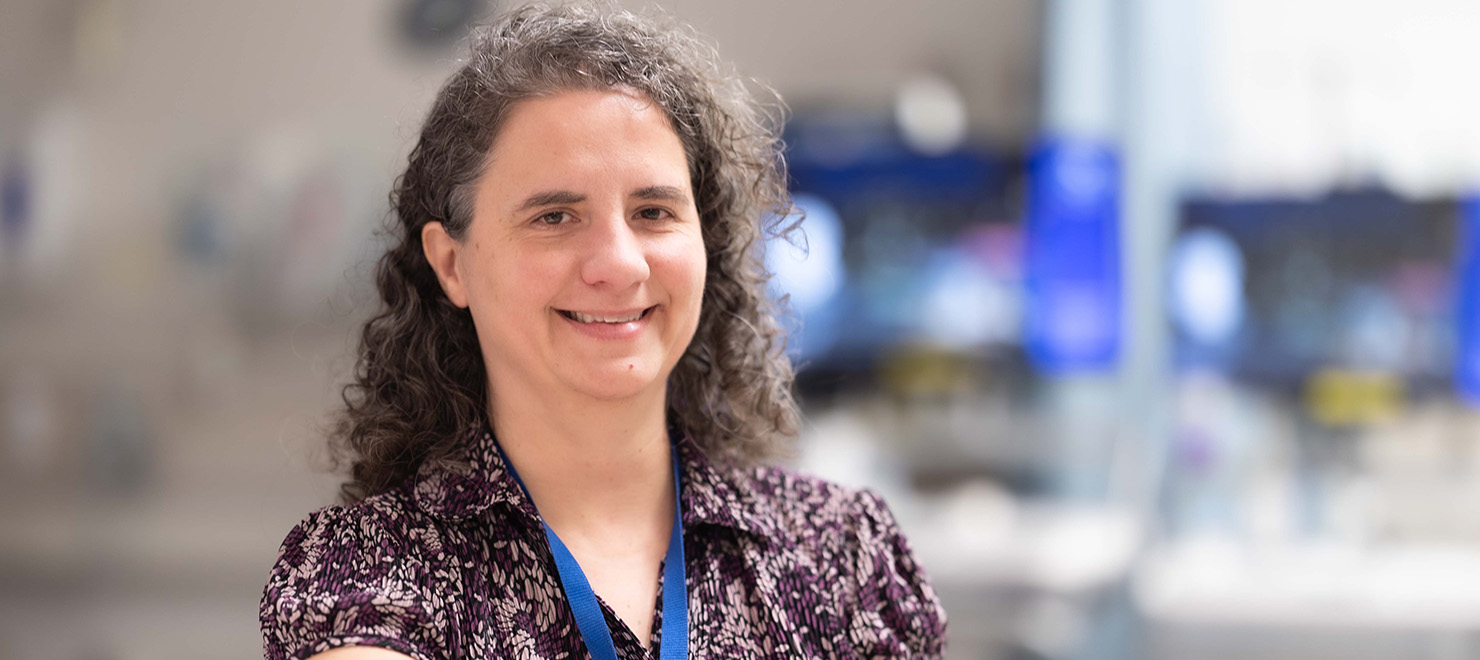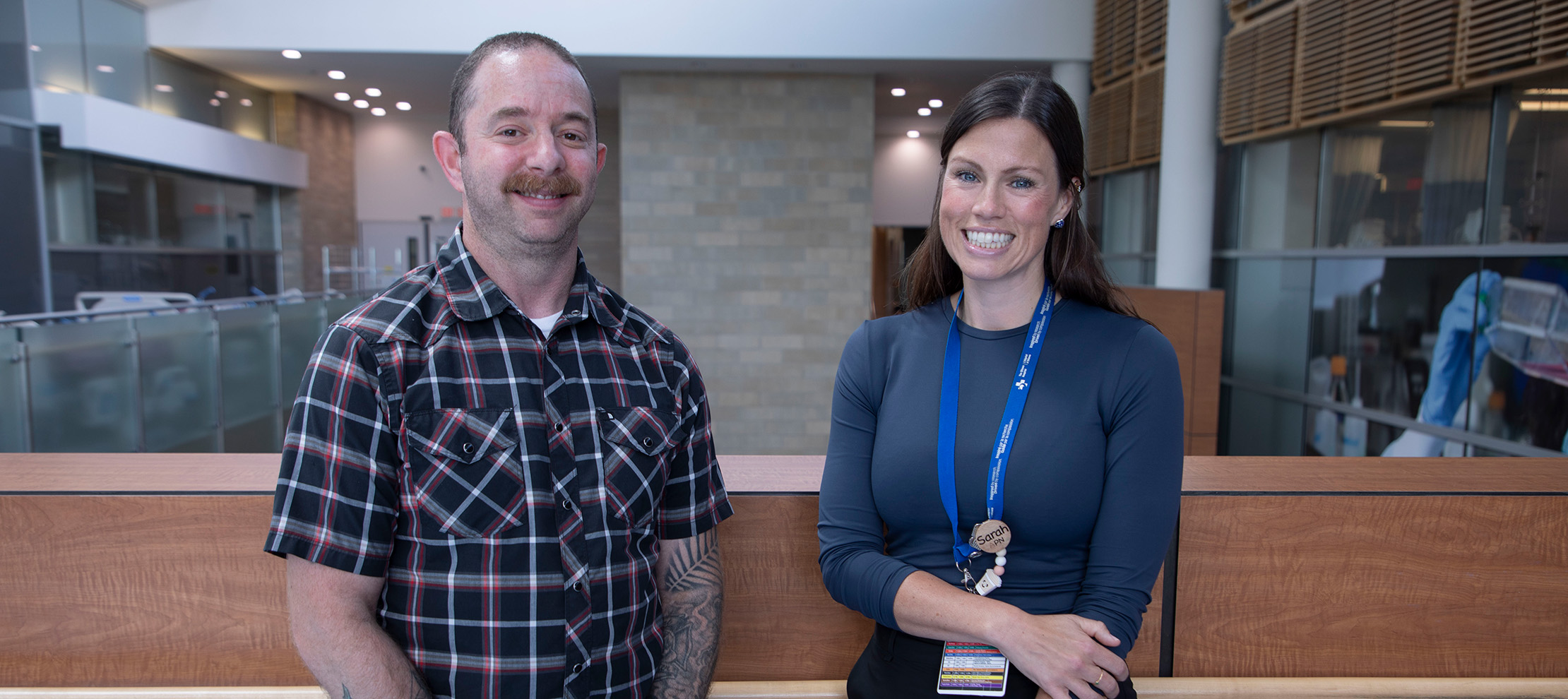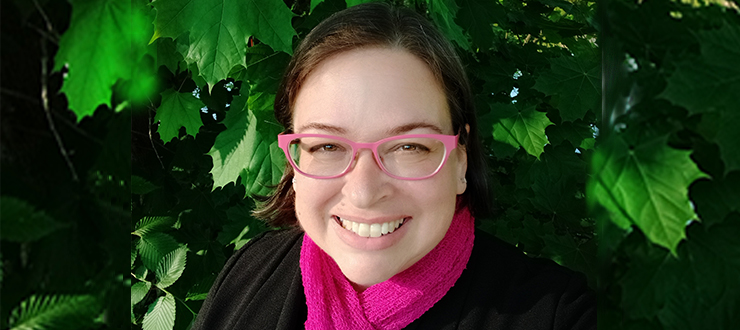
Jill Hamer-Wilson has dedicated her life to advocating for patient partnership in lung cancer research, with the hope of helping others identify the early signs of lung cancer.
In September of 2013, Jill Hamer-Wilson caught something many of us tend to catch this time of year – a cold. While the cold eventually went away, a cough remained, and lingered for quite some time. Little did Jill know that this was an early sign of lung cancer.
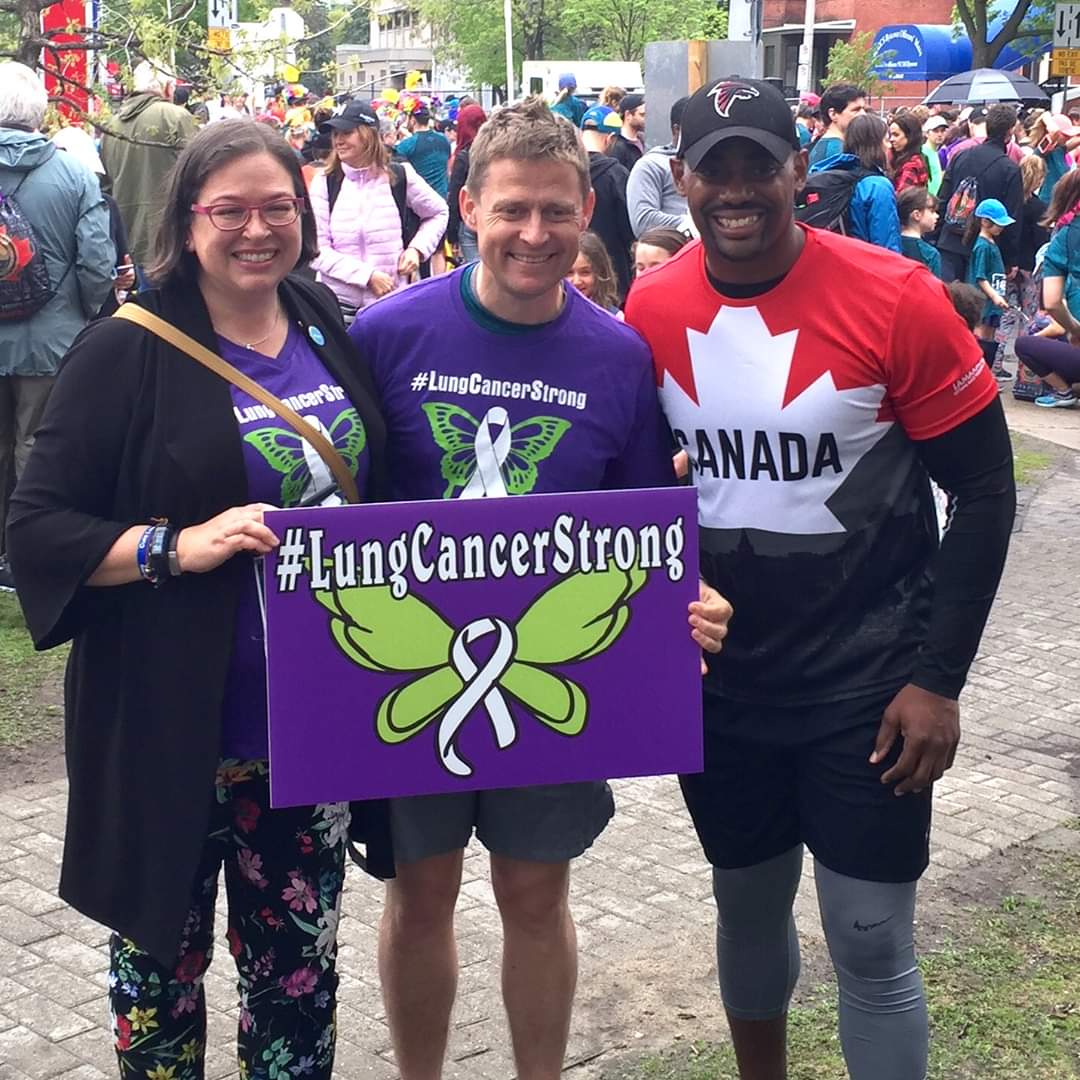
Jill (left) participated in Ottawa Race Weekend in 2019, along with other lung cancer advocates Dr. Paul Wheatley-Price (centre) and former NFL linebacker Chris Draft (right).
She was diagnosed with lung cancer just a few months later, in December of that year. Jill had never smoked. She was very active. In fact, she had just taken part in the Army Run that fall. To say this news came as a shock would be an understatement.
While a lung cancer diagnosis can cause a range of reactions from anyone, for Jill, it fuelled a new purpose. Throughout her years of treatment plans, different forms of cancer therapy and medication changes, Jill became an advocate for lung cancer research and awareness.
“The area of lung cancer research is exploding,” said Jill. “While previously, there was not much research done on this form of cancer, the list of studies and clinical trials continues to grow. As someone living with lung cancer, I’m comforted and excited to know that this area of research is growing.”
What makes lung cancer research so important? Aside from the fact that research can help uncover new forms of treatment, more research can help people understand the early signs of lung cancer, which can give clinicians a better chance to treat it.
“There are many things that more research helps us do, but helping people recognize the early signs of lung cancer could be among the most important. That is how we catch it early, treat it early and ultimately help people live longer.”
“Unfortunately in 2020, half of all lung cancers are diagnosed at an advanced stage, with no realistic chance of cure. Therefore early detection is the key to effective treatment for any kind of cancer, but especially cancer of the lungs,” said Dr. Paul Wheatley-Price, medical oncologist at The Ottawa Hospital and president of Lung Cancer Canada.
“The more awareness we can create about the early signs of lung cancer, the better chance we have of diagnosing and treating it early, which will ultimately lead to better outcomes for patients,” he continued. “Further, The Ottawa Hospital is one of the leading centres in the province in implementing a lung cancer screening program for early detection, which we hope to see available across the country.”
What do we know now?
According to the Canadian Cancer Society, the most common symptoms of lung cancer are:
- a cough that gets worse or doesn’t go away
- shortness of breath
- wheezing
- chest pain that is always felt and gets worse with deep breathing or coughing
- blood in mucus coughed up from the lungs
- chest infections like bronchitis or pneumonia that don’t get better or keep coming back
- weight loss
- fatigue
- hoarseness or other voice changes
- difficulty swallowing
- collapsed lung
- larger than normal lymph nodes in the neck or above the collarbone
- buildup of fluid around the lungs (pleural effusion)
- bone pain
- headache
- weakness
However, very few people think much of a cough before it gets really bad. So how do you know when to go to the hospital, or talk to your doctor? That is where further research on early detection can make all the difference.
“For now, if you have a persistent cough lasting for more than three weeks, make an appointment to see your doctor,” said Dr. Wheatley-Price.
Patient advocate in cancer research
For Jill, the need for early detection is part of the reason she has become so involved in lung cancer research. She is now involved in a number of cancer-focused organizations, including the American Association of Cancer Research, the Canadian Cancer Society, Lung Cancer Canada, The Ottawa Hospital, the Canadian Cancer Trials Group and the Supportive Training for Advocates on Research in Science (STARS) program, which works towards strengthening the patient voice in cancer research.
The STARS program focuses on training people to become lung cancer research advocates, helping them be better equipped to represent the patient voice in the research process. This is increasingly important as researchers are now discovering and embracing the fact that including the patient voice in the research process improves the research and therefore outcomes.
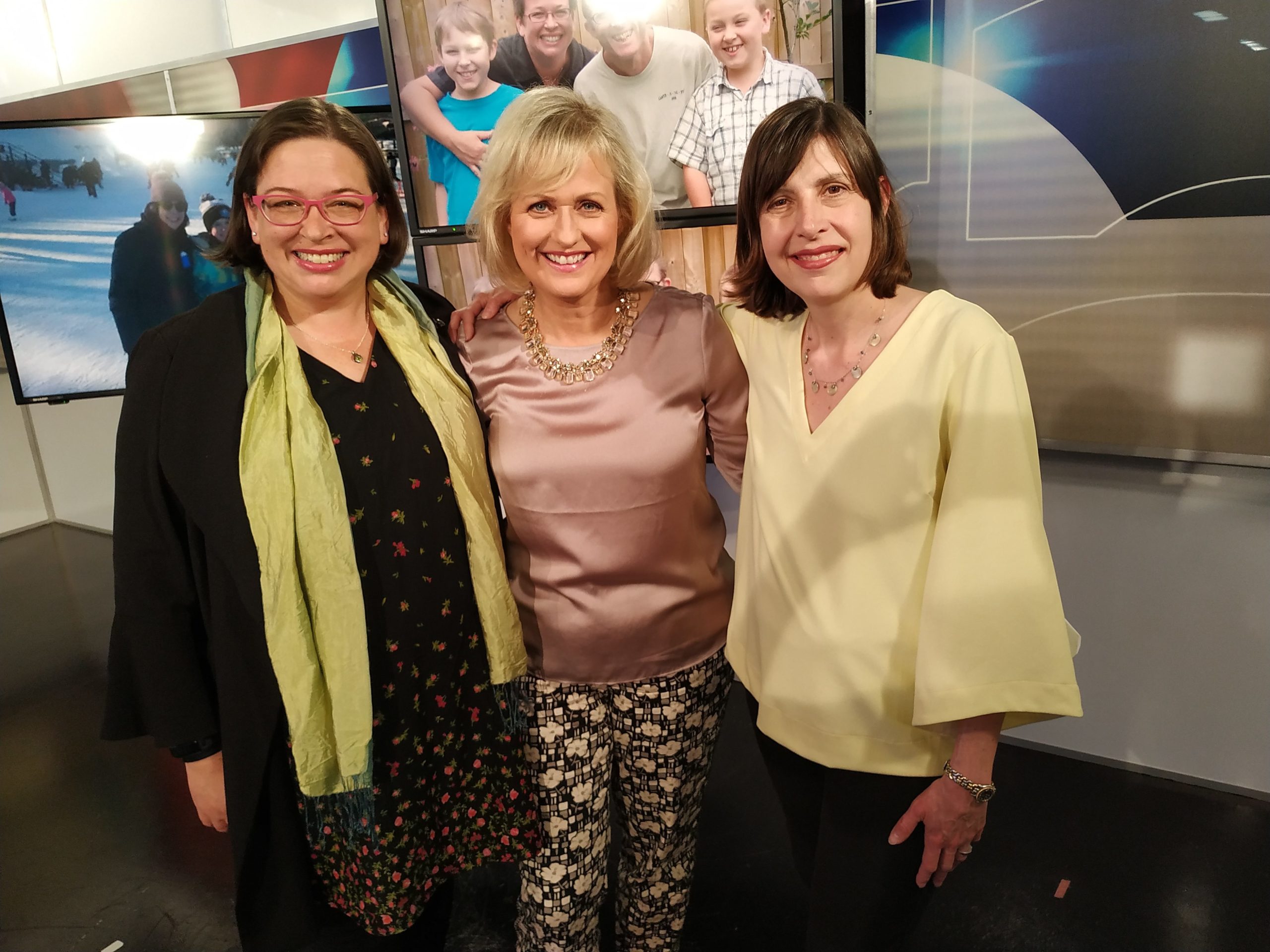
Jill (left) is often a spokesperson for other lung cancer survivors, sharing her story with local and national media outlets. Here she is alongside CBC’s Lucy Van Oldenbarneveld (centre) and Andrea Redway (right).
Having someone to talk to who has been through cancer treatment before can be a welcome source of support through the process. Mentorship also helps patients learn more about how to advocate for themselves and others in their position.
“I didn’t really know where to start, I just knew I wanted to get more involved,” said Jill. “Getting more involved has helped me learn more about what it means to be an advocate, and how I can share that knowledge with others.”
What does the future hold?
In the end, Jill just wants what any mother would want: to watch her kids grow up. Her oldest is heading off to university this year, something she proudly shares whenever she can, as any mother would. She is focused on the things many of us take for granted, like enjoying family time. But she is by no means slowing down.
Jill’s work as an advocate for patient partnership in cancer research keeps her very busy. In the last year alone, she has been to Atlanta, Barcelona and Washington! No matter where she goes, she is driven by one goal: to help research get closer to early detection of lung cancer.
“There are many things that more research helps us do, but helping people recognize the early signs of lung cancer could be among the most important. That is how we catch it early, improve treatment and ultimately help people live longer.”
If you want to learn more about Jill’s journey, or find out how you can get more involved in cancer research and advocacy, follow her on Twitter (@JillHW) or her blog Through the Valley.

Support patient care and research at
The Ottawa Hospital
You might also like…
Dr. John Bell and Stephen Beckta inducted into the Order of Canada
The Ottawa Hospital is proud to share that on December 31, 2025, two members of our team were inducted into the Order of Canada. Congratulations Dr. John Bell and Stephen Beckta.
Everyone at our hospital plays a role in research. Here’s how
It’s Research Week at The Ottawa Hospital. Check out this video to hear from some of the incredible people fuelling our discoveries that are having an impact around the world.
Living with chronic pain? This online tool offers help — and hope
The Power Over Pain Portal is a free virtual resource hub designed to help empower youth and adults living with chronic pain through education and peer support.
What to do in an emergency: New first aid video series on YouTube
Would you know what to do if you saw someone experience a stroke, heart attack or opioid overdose? We’ve launched a series of easy-to-follow videos on YouTube that walk you through how to respond to common first aid emergencies.
Flu season 101: A quick guide to keeping the sniffles away
Got two minutes? This short guide could help you make it through flu season without stocking up on tissues.
New program fills gap in care for teens and young adults with cancer
For young people, a cancer diagnosis can disrupt their education, careers, relationships and family-building goals. Our Adolescent and Young Adult (AYA) Cancer Program supports AYAs on their cancer journey, complementing the care provided by their care team.


 To reset, hold the Ctrl key, then press 0.
To reset, hold the Ctrl key, then press 0.
